
Guaíba is a city located in the Metropolitan Porto Alegre of Porto Alegre, in the Brazilian state of Rio Grande do Sul. The city is on the shores of the Guaíba Lake.
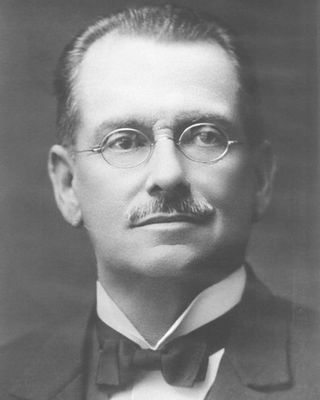
Augusto Pestana was a Brazilian engineer and politician. Born in Rio de Janeiro, Pestana moved in the late 1880s to Rio Grande do Sul, Brazil's southernmost state, where he would become a specialist in railroad engineering and public administration, as well as one of the main leaders of the Republican Party of Rio Grande do Sul (PRR).
Most major parties launched gubernatorial candidates for the 2006 elections in Rio Grande do Sul:

Francisco de Sales Torres Homem, Viscount of Inhomirim, was a physician, lawyer, journalist, romantic writer, deputy, senator, top officer of the National Treasury, president of the Bank of Brazil and Minister of Treasury. The only afrobrazilian ever to have been in charge of the economy of Brazil throughout its history.

RBS TV is a Southern Brazilian television network owned by Grupo RBS, and one of the oldest Rede Globo affiliates. The acronym originally stood for Rede Brasil Sul de Televisão, but currently the network never uses its full name on-air.
Grupo RBS is a Brazilian media conglomerate founded on August 31, 1957, by Maurício Sirotsky Sobrinho. One of Brazil's largest communication groups, it is also the largest affiliated with TV Globo. The media group is made up of radio and television stations as well as newspapers and online news portals, which deliver journalistic and entertainment content. With its more than 6,000 employees, Grupo RBS constitutes the second largest company in Brazil when it comes to the number of journalists employed.
The following is a timeline of the history of the city of Porto Alegre, in the state of Rio Grande do Sul, Brazil.

Fernanda Melchionna e Silva is a Brazilian politician and former bank clerk and librarian. She has spent her political career representing the state of Rio Grande do Sul, having served as federal deputy representative since 2019.
Classical music in Porto Alegre, the capital of Rio Grande do Sul, Brazil, begins at the end of the 18th century, but this artistic field did not really begin to flourish until the middle of the 19th century, and was consolidated throughout the 20th century with the founding of several educational institutions and the proliferation of groups, interpreters and composers, projecting the city across the state as the main producer and radiator of influence. Currently Porto Alegre has a considerable audience for classical music; it is in the script of concertists of international fame, has two stable orchestras and a chamber orchestra, and numerous smaller chamber groups and vocal and instrumental soloists, as well as a large number of music schools and performance spaces. Some of its composers have known national fame. According to conductor Isaac Karabtchevsky, who was the artistic director of OSPA, "there is no greater identity in music in the world than in the population of Porto Alegre". At the same time there is a significant development in academic research and advanced professional qualification in undergraduate and graduate courses in music at UFRGS.
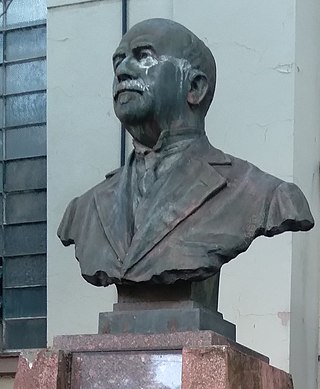
Inácio Montanha was a Brazilian educator.
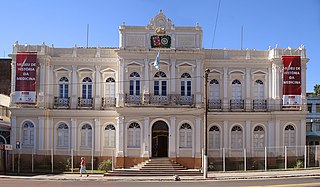
The Beneficência Portuguesa de Porto Alegre, originally Sociedade Beneficente e Hospitalar da Colônia Portuguesa de Porto Alegre, is a Brazilian philanthropic hospital institution in the city of Porto Alegre, state of Rio Grande do Sul.

Alfândega Square is a public, historic, and tourist attraction in the Brazilian city of Porto Alegre, capital of the state of Rio Grande do Sul.

The Ely Building is a historic construction located in the Brazilian city of Porto Alegre, capital of Rio Grande do Sul, considered a cultural heritage of the city.

The Mauá Wharf is a section of the river port located in the Brazilian city of Porto Alegre, in the state of Rio Grande do Sul. It is situated on the Navegantes Canal, upstream of Lake Guaíba, and is part of the Jacuí Delta.
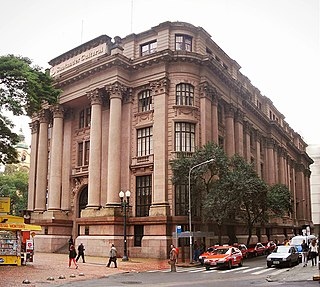
Banco da Província was the first commercial bank in the Brazilian state of Rio Grande do Sul. It was founded on July 1, 1858, by Lopo Gonçalves Bastos, João Batista Ferreira de Azevedo and José Antônio Coelho Júnior to facilitate their commercial transactions.

Andradas Street is located in the Brazilian city of Porto Alegre, in the state of Rio Grande do Sul. The stretch from Gasômetro to General Câmara was called Rua da Praia, and the stretch between General Câmara and Senhor dos Passos was called Rua da Graça.
Record RS is a Brazilian television station based in Porto Alegre, capital of the state of Rio Grande do Sul carrying the Record network for most of the state. It is owned by Grupo Record, alongside Rádio Guaíba and the newspaper Correio do Povo with its studios being located in Santa Tereza, and its transmitter is at the top of Morro da Polícia.
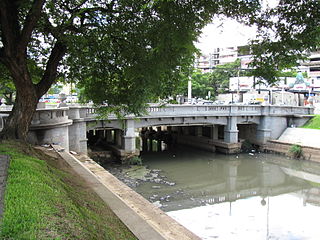
The Azenha Bridge is located in the Azenha neighborhood, in the Brazilian city of Porto Alegre, in the state of Rio Grande do Sul. It is situated on the corner of Azenha and Ipiranga avenues.
The 2024 Porto Alegre mayoral election will take place in the city of Porto Alegre, Brazil on 6 October 2024. Voters will elect a mayor, a vice mayor, and 36 councillors. The incumbent mayor, Sebastião Melo, a member of the Brazilian Democratic Movement (MDB), was elected in 2020 for his first term and intends to run for re-election. If the most voted candidate on the first round doesn't achieve more than 50% of the votes, a second round will happen on 27 October 2024. The mayor's term will begin on 1 January 2025 and end on 31 December 2028.
Record Brasília is a Brazilian television station based in Brasília, Federal District carrying Record for the Brazilian capital area and its surroundings. Owned-and-operated by Grupo Record, its studios are in the Record Building, located in the Southern Radio and Television Sector (SRTVS), in the South Wing of Plano Piloto, and its transmitters are in the Digital TV Tower of Brasília, in the administrative region of Lago Norte.














